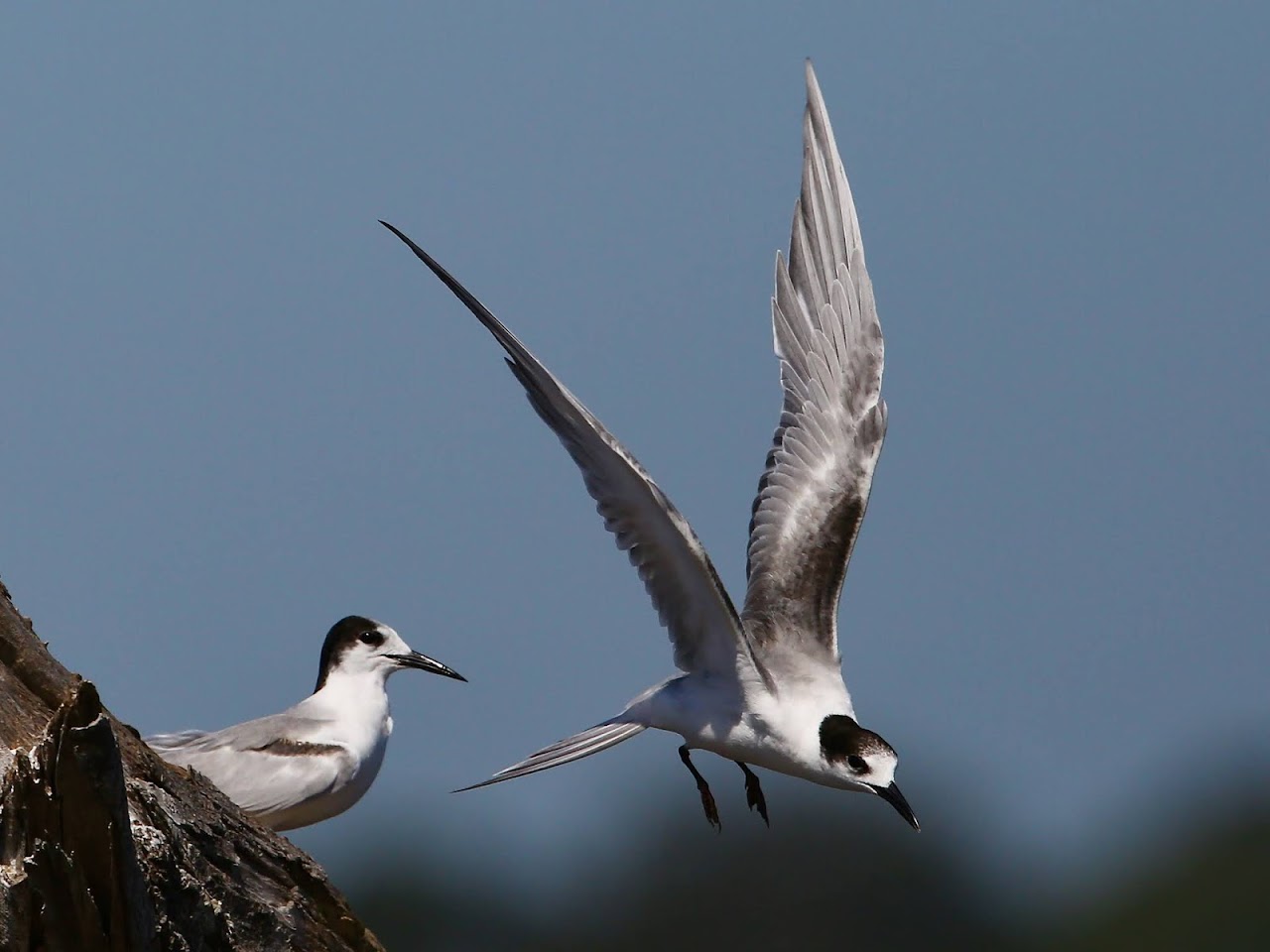Common Terns (Sterna hirundo) are non-breeding summer migrants to Australia. Their distribution in Australia can be seen in the following Birdata screen shot. The number of sightings per month graph at the right in the screen shot shows that some birds, probably young non breeding birds, over-winter in Australia. The sub species longipennis is found in Australia and breeds in North and East Siberia.
The Common Tern is common in the northern hemisphere, hence the name, however they are relatively uncommon in Australia. They can often be found roosting/resting with other tern species such as Little and Crested Terns where their presence may be overlooked so it is always worth a careful check through large flocks of terns to see if there are any other species present.
We mostly see the Common Tern in non-breeding condition with black bill, orange/red/black legs, white forehead and mottled dull black crown. The following photos were taken in Jones Bay on the Gippsland Lakes where a flood deposited dead tree provided a crowded resting site for mostly Common Terns with a few Little Terns and one Silver Gull also managing to find a spot to perch.
Birds came and went and with each new arrival there were protests from the incumbent birds letting the newcomers know there was no room for them - this behaviour afforded a number of flight shots as incoming birds hovered looking for a spot to land.
In my waders, I managed to approach the birds by very slow and staged advances without them flushing.
Please click on photos to enlarge.
Little Tern moulting out of breeding plumage - a few Little Terns shared the dead tree with the Common Terns.
After taking photos I slowly backed away leaving the birds undisturbed at their rest site.












No comments:
Post a Comment